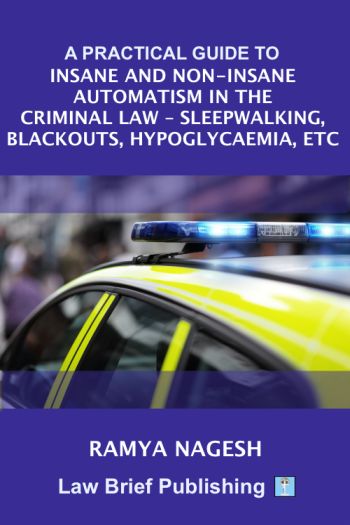
Cases involving sleepwalking, blackouts at the wheel, hypo and hyper glycaemia and other instances where a person cannot control their actions have been the subject of much debate in the criminal law. The difficulties involved in such situations can be seen by certain unsatisfactory conclusions: such as sleepwalkers being dubbed insane, or the fact that whether the defendant was suffering from hypo and hyperglycaemia can mean the difference between being found insane, or being acquitted on the basis of non-insane automatism.
Barrister Ramya Nagesh’s latest book will deal with this thorny topic. Ramya has already authored A Practical Guide to the Law in Relation to Hate Crime and Covid-19 and Criminal Law – The Essential Guide, both published by LawBrief publishing. Her new book will be a comprehensive guide for any legal practitioner wishing to understand more about this complex area of law. It would be a great addition to the bookshelf of any legal professional, or indeed anyone with an interest in the topic.